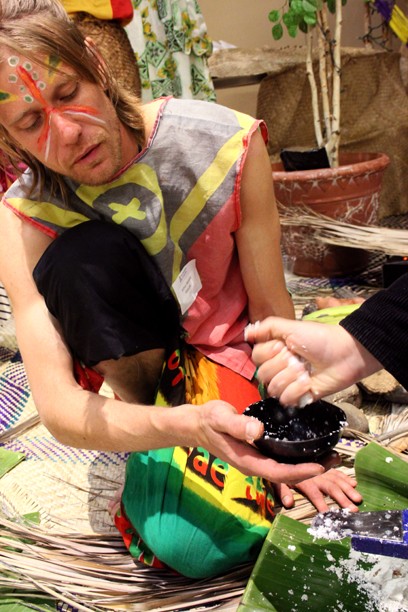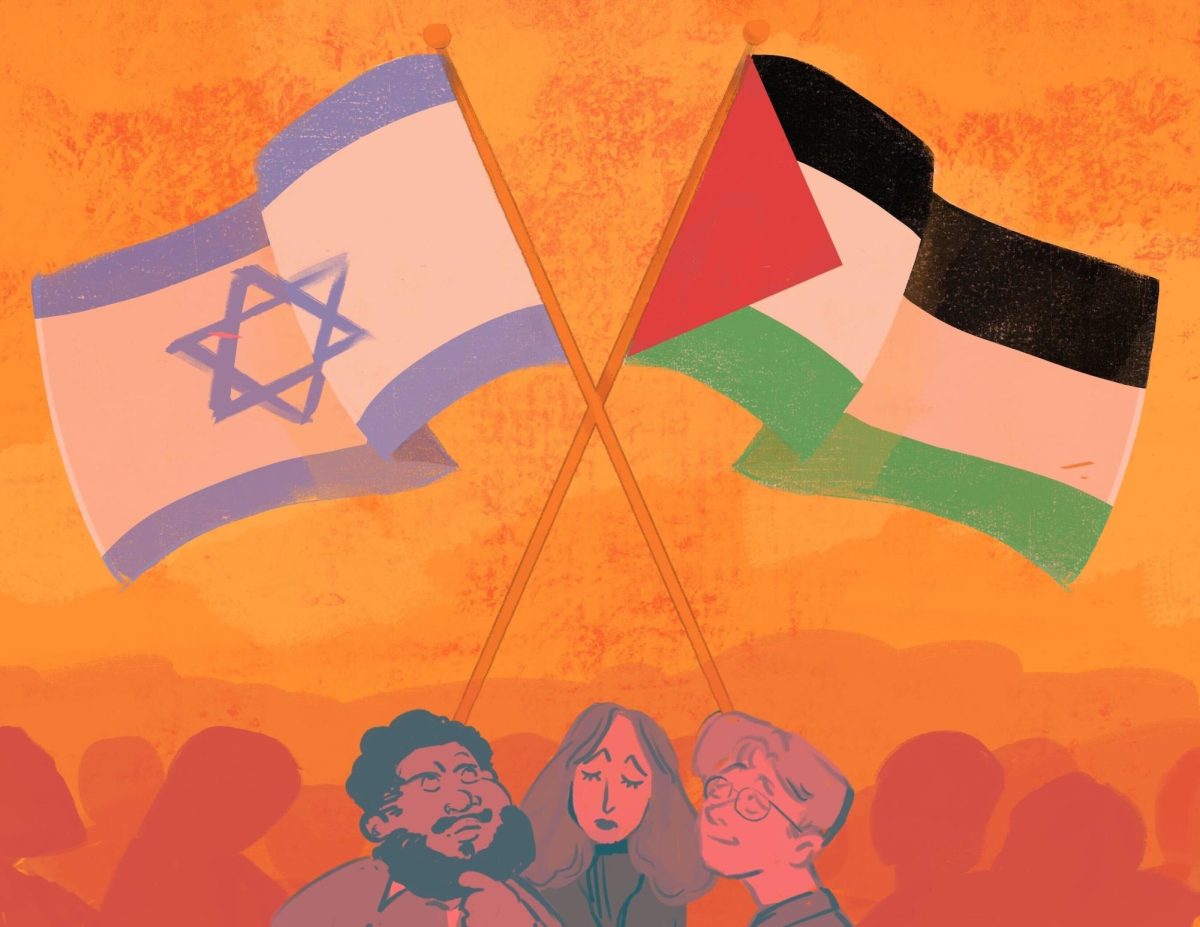The Student Union Memorial Center North Ballroom hosted various cultural booths showcasing art, clothing, music and photos of various countries the Peace Corps works in on Tuesday night.
The Peace Corps Fair provided students with the opportunity to learn about the Peace Corps by bringing in previous volunteers to share their experiences.
The number of Peace Corps applicants from the UA doubled this year from last year, said Lauren Maghran, UA recruiter for the Peace Corps.
“I know our numbers were low last year,” Maghran said, “but I think they are going up, and U of A students seem very interested.”
Eller College of Management MBA programs had a booth at the fair and Sylvia Muñoz, the MBA operations manager, said having the Peace Corps on your application is an advantage.
“It shows your global perspective and experience,” Muñoz said. “A lot of our MBAs have their Peace Corps services in developing countries where they created business development.”
Moira Alexander, a public health graduate student who went to Morocco with the Peace Corps, said her Peace Corps experience is valuable as a graduate student. When a professor asks if anyone has had an experience with an agency, a lot of the students who have joined the Peace Corps raise their hands, Alexander explained.
“I think the experience is really difficult to get in another way,” Alexander said. “We’ve had a lot of different experiences in getting grants, organizing communities and working with multilevel agencies.”
At the start of the event, about 40 students were walking around the booths and gathering information.
Chelsea Olson, a freshman majoring in East Asian Studies, said she had a lot of teachers that have been in the Peace Corps and they recommended she visit the fair.
EJ Richardson, a political science senior, said he heard about the fair from his political science class.
“I have an emphasis in foreign affairs, so I have an interest in working around the world,” Richardson said, “and the fact that there was free food helped, too. I was just interested in meeting the people and seeing their experiences.”
Kelli Williams, an anthropology junior, said she plans on joining the Peace Corps and is interested in possibly traveling to South America and Asia.
“I think it’s a good cause and probably a good way to live, financially, two years after college,” Williams said.
Leah Iverson, a public health graduate student who traveled to El Salvador, explained that returning Peace Corps volunteers could be eligible for the Coverdell Fellows Program, which includes a full tuition waver at the UA.
Students in the program must complete an internship for two years to fulfill community service requirements. Organizations like the community food bank were also present at the fair so that students could gather more information about community service.
The goals of the Peace Corps are sharing the American culture with people abroad, providing technical support and learning about a different country’s culture and sharing that experience back in the U.S., according to Iverson.
The African countries’ booth included drums played by Desneige Hallbert, a landscape architecture graduate student, and dancing by Jessamyn Bowling, a public health graduate student. Hallbert said that she designed her first garden when she was with the Peace Corps, and that was how she discovered what she wanted to do.
Hallbert urged students to visit Africa with the Peace Corps.
“People who go to [the] Peace Corps in Asia, they come back very spiritual. The people who go to South America come back political. The people who go to Africa come back dancing and laughing,” Hallbert said. “There is so much culture there. There’s just so many colors, and it feels like a big hug. They [students] should go for the colors, the smells, the music and [the fact that] everyone dances.”
Ben Pawlowski, an art education graduate student, said that the Peace Corps was the most logical and fulfilling way to get international experience and that volunteering changed his perspective on life.
“I feel like it gave me a thicker skin in a lot of ways,” Pawlowski said. “I tend to not worry about things as much; like, what’s the worst that can happen? I have a place to sleep and [get] food. I just tended to be a lot more satisfied with life [after my experience].”









